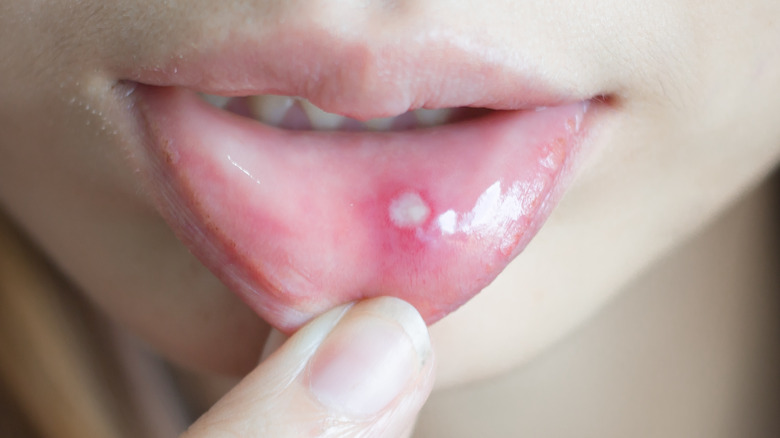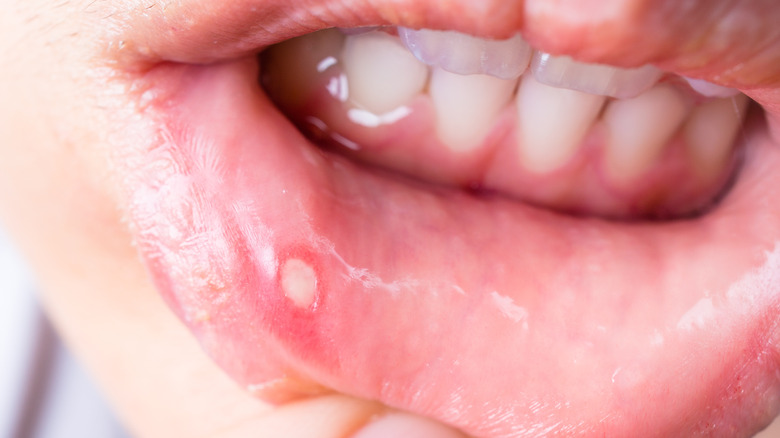Here's What's Really Causing Your Canker Sores
If you have ever had a canker sore, you are well-aware of how irritating it can be. Canker sores are painful oval-shaped ulcers within the mouth. They are typically yellow or white and circled by a ring of inflamed red tissue. Unlike cold sores, which typically occur outside of the mouth, canker sores are not contagious (per Healthline). That being said, many people experience canker sores at some point, which begs the question: Why?
Canker sores can develop due to a number of causes. Toothpaste that contains sodium lauryl sulfate is a common culprit. Canker sores can also be caused by oral injuries. For example, maybe you accidentally bit the inside of your cheek. Diet can also play a role in whether you develop a canker sore. People who have a diet that is low in zinc, folate, iron, or vitamin B-12 are more likely to have canker sores. Spicy and acidic foods can also cause canker sores in some people. Other common triggers include stress and hormonal shifts (per Mayo Clinic).
This is why some people have a lot of canker sores
While canker sores are a problem for many people, not everyone develops them. Canker sores are a chronic problem for up to 25% of people, according to The Journal of Clinical and Experimental Dentistry. In some cases, recurrent canker sores are caused by disorders such as celiac disease, inflammatory bowel diseases, Behcet's disease, and HIV/AIDS (per Mayo Clinic). But what if a person is otherwise healthy?
According to the American Academy of Oral Medicine, even experts don't have a satisfying answer to this question. A leading theory is that recurrent canker sores are caused by a malfunction in the immune system that leads white blood cells to attack cells inside the mouth. Recurrent canker sores often run in the family and are more likely to affect females, teens, and young adults, according to the Mayo Clinic.
The good news is that canker sores generally last no longer than a week or two. If your canker sores are unusually large, accompanied by a fever, don't go away within two weeks, or make it hard to eat or drink, the Cedars-Sinai Medical Center recommends setting up an appointment with your doctor.


